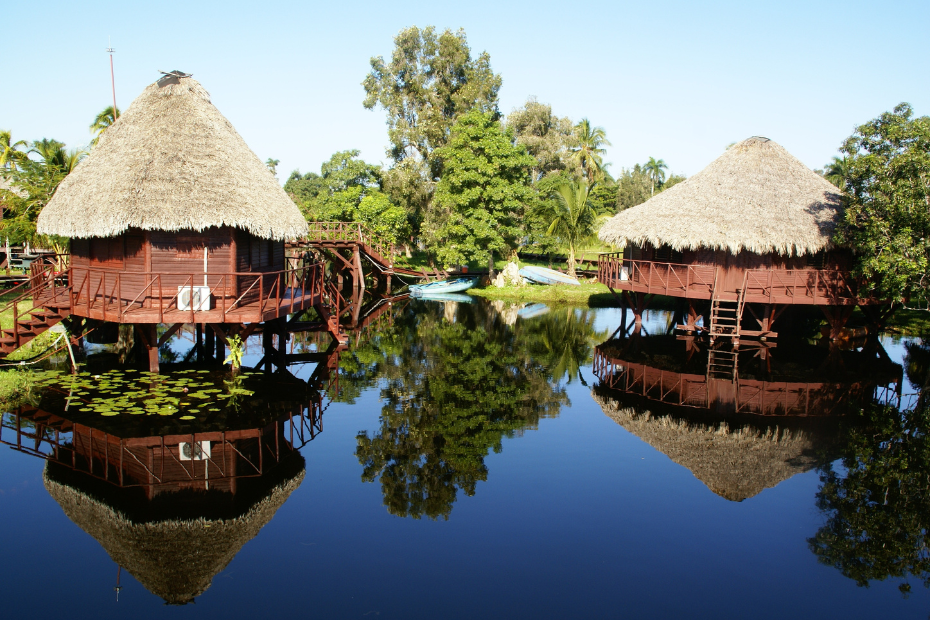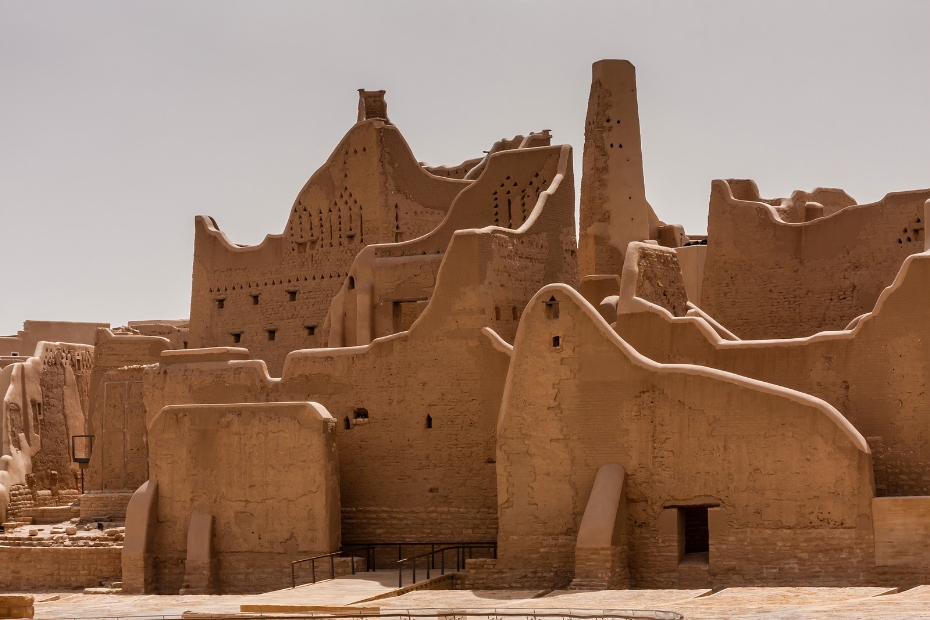Rural tourism offers you a unique opportunity to experience a different side of travel. Instead of visiting the usual tourist hotspots in cities, you can venture into the heart of rural communities and immerse yourself in their art, culture, and heritage. This provides an enriching experience and benefits the local community economically and socially. Participating in rural tourism creates sustainable development opportunities while learning about and enjoying the local way of life.
Experiential Tourism: Engaging in Authentic Cultural Experiences
Experiential tourism provides unique experiences by exposing you learn new cultures, traditions, and cuisines. As a discerning wanderer, travel to previously unknown rural locations for a truly one-of-a-kind adventure. Examples of such experiences include:
- Staying with a local family in a rural homestay.
- Participating in a traditional cooking class.
- Learning an indigenous art form.
These immersive activities give you a deeper understanding of the local culture and help promote responsible travel.
How Rural Tourism Positively Impacts Local Communities
Your visit can generate income for small businesses, create job opportunities, and encourage the preservation of traditional arts and crafts. Furthermore, it promotes sustainable development by revitalizing rural areas and incentivizing locals to stay in their communities. For example, in the Kumaon region of India, local homestays have generated income and provided a sense of pride to the community while preserving the region’s natural and cultural resources.
Embracing Sustainable and Responsible Travel in Rural Destinations
As a responsible traveler, you can make choices that support sustainable tourism in rural destinations. This involves minimizing your environmental footprint, respecting local customs and traditions, and giving back to the host communities. By choosing eco-friendly accommodations, participating in sustainable activities, and supporting local businesses, you can help promote long-term sustainability and cultural preservation. An example of a sustainable rural tourism initiative is the community-based ecotourism project in the village of Gavi, Kerala, which has successfully conserved the region’s rich biodiversity while empowering the local community.
Farm Stays: Immerse Yourself in Agricultural Tourism
Farm stays are a popular way to experience rural tourism, allowing you to become a part of the local agricultural lifestyle. By staying on a working farm, you can engage in daily activities such as planting, harvesting, and animal care while enjoying delicious farm-fresh meals. One example of a farm stay in India is the Acres Wild Cheesemaking Farm in Coonoor, where you can learn the art of organic cheesemaking and enjoy the serene beauty of the Nilgiri Hills.
Delving into the Rich Heritage of Rural Communities
Rural communities often have a wealth of cultural heritage waiting to be explored. Visiting these locations allows you to experience local music, dance, and other traditional art forms passed down through generations. Attending festivals or visiting local artisans’ workshops can provide you with a firsthand look at the creative spirit of these communities. One such event is the Hornbill Festival in Nagaland, which showcases the rich cultural heritage of the region’s various tribes through traditional dance, music, and crafts.
Discovering the Natural Wonders of Rural Landscapes
The natural beauty of rural landscapes is a significant draw for many travelers. These areas often feature stunning vistas, diverse ecosystems, and unique wildlife encounters. Exploring nature reserves, going on birdwatching excursions, or trekking through the countryside are all ways to appreciate the natural wonders of rural destinations. For example, the Valley of Flowers National Park in Uttarakhand, India, offers visitors an unforgettable experience of trekking through a vibrant landscape filled with over 300 species of wildflowers.
Seeking Adventure and Thrills in Rural Settings
Rural destinations can be the perfect playground for adventure seekers. From hiking and mountain biking to river rafting and paragliding, there are countless opportunities for adrenaline-pumping experiences. By participating in these activities, you can not only enjoy the thrill of adventure but also connect with the natural surroundings in a unique way. One example of an adventure tourism destination is Bir Billing in Himachal Pradesh, India, renowned for its world-class paragliding opportunities.
The Restorative Power of Village Life: A Break from Urban Chaos
The slow pace of life in rural villages provides a welcome respite from the hustle and bustle of city living. By immersing yourself in the tranquility of these locations, you can enjoy a rejuvenating experience that leaves you feeling refreshed and recharged. Many rural retreats offer activities such as yoga, meditation, or simply strolling through the peaceful countryside. For instance, the SwaSwara wellness retreat in Gokarna, Karnataka, offers a holistic wellness experience that combines yoga, meditation, and Ayurveda amidst the serene surroundings of a coastal village.
Exploring Traditional Arts and Crafts in Rural Communities
Rural communities are often home to skilled artisans who practice traditional arts, and crafts passed down through generations. By visiting these communities, you can observe the artisans at work, learn about their craft, and even participate in workshops to try your hand at these creative endeavors. For example, the village of Raghurajpur in Odisha is famous for its Pattachitra paintings. This unique art form uses natural colors and intricate designs to depict scenes from Indian mythology.
Supporting Traditional Occupations and Rural Development through Tourism
When you choose to engage in rural tourism, you are directly contributing to the preservation of traditional occupations and the overall development of rural areas. By purchasing locally made products and participating in cultural experiences, you help support the livelihoods of artisans, farmers, and other local professionals. This encourages the continuation of these time-honored practices and fosters community pride. For example, the Mawlynnong village in Meghalaya, India, has gained global recognition for its cleanliness and sustainable practices. It attracts tourists who support the local economy and help maintain the village’s unique character.
Navigating Accessibility and Infrastructure in Rural Destinations
As rural tourism gains popularity, expanding road infrastructure has made many previously remote areas more accessible to visitors. However, it is still essential to plan your trip carefully, considering local transportation options, accommodations, and the availability of essential services. Researching your destination and seeking advice from local tour operators can help you ensure a smooth and enjoyable rural travel experience. Developing rural tourism circuits, such as the Saurashtra Rural Tourism Circuit in Gujarat, India, has significantly improved accessibility and infrastructure for tourists in these regions.
India’s Diverse Rural Attractions: From Coastal Villages to Mountain Retreats
India’s rural landscapes offer an incredible variety of experiences, catering to diverse interests and preferences. From the pristine beaches of coastal villages to the breathtaking mountain vistas of the Himalayas, there is something for everyone. You can also explore desert communities, dense forests, and tribal regions, each offering unique cultural and natural attractions. For instance, the village of Khimsar in Rajasthan provides a glimpse into the vibrant culture and stunning landscapes of the Thar Desert.
Experience the Ancient Wisdom of Ayurveda in Rural India
Rural tourism provides an opportunity to explore the world of Ayurveda, an ancient Indian system of medicine and holistic wellness. By visiting Ayurvedic retreats or participating in Ayurvedic treatments and therapies, you can experience the healing power of this time-tested practice. One such destination is the Kairali Ayurvedic Healing Village in Palakkad, Kerala, where you can immerse yourself in a comprehensive wellness program surrounded by the natural beauty of the Western Ghats.
Connect with Nature through Ecotourism and Wildlife Tourism
Ecotourism and wildlife tourism align with rural tourism, allowing you to explore rural landscapes’ diverse flora and fauna while contributing to conservation efforts. By visiting nature reserves, national parks, and wildlife sanctuaries, you can enjoy responsible wildlife encounters and support the preservation of these unique ecosystems. One such destination is the Periyar Wildlife Sanctuary in Kerala, where you can enjoy boat safaris, trekking, and other eco-friendly activities while observing the region’s rich biodiversity.
Planning Your Rural Tourism Adventure: Tips and Tricks
To make the most of your rural tourism experience, planning carefully and considering factors such as local weather, accommodations, transportation, and cultural etiquette is crucial. Research your destination thoroughly and consult with local tour operators or tourism boards to ensure you have up-to-date information. Additionally, be prepared to adapt to local customs and traditions to enjoy a respectful and fulfilling experience. For example, dressing modestly and learning basic local phrases can go a long way in fostering positive interactions with the local community.
The Best Time to Visit India’s Rural Destinations
The ideal time to visit rural destinations in India depends on the region and the specific experiences you are seeking. Generally, the cooler months between October and March are considered the most comfortable for traveling. However, some destinations, such as the hill stations of Himachal Pradesh or the lush landscapes of Kerala during the monsoon season, offer unique experiences during other times of the year. Be sure to research your chosen destination’s climate and seasonal variations to plan your trip accordingly.
Unique Accommodation Options in Rural India
Rural tourism offers a variety of unique accommodation options, ranging from traditional homestays to eco-friendly resorts. Staying in these accommodations allows you to experience the local way of life while supporting sustainable tourism practices. Some examples include the family-run Tathastu Resort in Pench National Park, which offers eco-friendly lodges and promotes wildlife conservation, and the Chettinadu Mansion in Tamil Nadu, which provides an authentic heritage experience in a beautifully restored traditional mansion.
Savoring the Flavors of India: Rural Cuisine and Culinary Experiences
Rural tourism offers a unique opportunity to discover India’s many regions’ diverse and flavorful cuisine. By participating in cooking classes, dining at local eateries, or enjoying farm-to-table meals, you can savor the authentic tastes of rural India while learning about the culinary traditions that shape the local culture. One such experience is the culinary tour offered by Saffron Palate in New Delhi, which takes you on a journey through the flavors and techniques of traditional Indian cooking.
Local Etiquette and Customs: Respectful Tourism in Rural India
Respecting local customs and etiquette is essential when visiting rural communities. Be mindful of local dress codes, religious practices, and cultural norms to ensure your presence is not disruptive to the community. Try to learn a few basic phrases in the local language and show appreciation for the hospitality you receive. By demonstrating respect and cultural sensitivity, you can foster positive relationships with the local community and contribute to the sustainable development of rural tourism.
The Evolving Landscape of Rural Tourism: Future Trends and Opportunities
As rural tourism continues to grow in popularity, new opportunities and trends are emerging to cater to travelers’ diverse needs and interests. These include the development of community-based tourism initiatives, integrating technology in rural tourism services, and focusing on sustainable and responsible travel practices. By staying informed about these trends and seeking out innovative rural tourism experiences, you can contribute to the ongoing evolution of this exciting sector and enjoy a truly transformative travel experience.
Rural India’s Festivals and Celebrations: A Cultural Extravaganza
Experiencing local festivals and celebrations is a fantastic way to gain a deeper understanding of the rich cultural heritage of rural India. These events often feature vibrant processions, traditional music, dance performances, and other unique cultural activities. By attending these festivities, you can witness the community’s pride in their traditions and participate in the joyous atmosphere. One such celebration is the Pongal Festival in Tamil Nadu, a four-day harvest festival with various rituals, cultural performances, and delicious food.
Volunteering Opportunities in Rural Tourism
Volunteering during your rural travels can provide a more meaningful and fulfilling experience. Many organizations and initiatives offer opportunities to contribute your skills and time to support local communities, conservation efforts, or cultural preservation. For example, the Grassroutes Journeys organization in India connects travelers with responsible volunteering opportunities in rural communities across the country, helping to foster sustainable development and cultural exchange.
The Role of Responsible Tourism in Rural India
As the popularity of rural tourism grows, it’s essential to prioritize responsible and sustainable practices that minimize negative impacts on the environment, culture, and local communities. By choosing eco-friendly accommodations, engaging in responsible wildlife encounters, and supporting local businesses, you can contribute to the sustainable development of rural tourism in India. Additionally, educating yourself about local customs and etiquette can help ensure that your presence is respectful and welcomed by the communities you visit.
Exploring India’s Off-the-Beaten-Path Rural Destinations
While many popular rural destinations offer unforgettable experiences, venturing off the beaten path can provide unique opportunities to discover lesser-known communities and attractions. These hidden gems often offer unparalleled authenticity and a sense of discovery, allowing you to connect more discreetly with the local culture and environment. One such off-the-beaten-path destination is the village of Majuli in Assam, the world’s largest river island and home to a rich cultural heritage, including the centuries-old mask-making tradition.
Connecting with Rural India through Storytelling and Personal Experiences
Sharing stories and personal experiences from your rural travels can inspire others to explore these unique destinations and contribute to the sustainable development of rural tourism. By recounting your journey and highlighting the positive impact of rural tourism on local communities, you can help raise awareness about the importance of responsible travel and cultural preservation. Consider writing about your adventures on a blog, sharing photos on social media, or engaging in conversations with friends and family to share your experiences and encourage others to embark on their rural adventures.
Embracing Digital Detox and Mindfulness in Rural India
A significant aspect of rural tourism is the opportunity to escape the constant digital stimulation of urban life and reconnect with nature, yourself, and the present moment. Embracing digital detox and mindfulness during rural travels can help you achieve more profound relaxation and rejuvenation. Many rural destinations, such as the Auroville community in Tamil Nadu, offer retreats and workshops focused on yoga, meditation, and other wellness practices, providing the perfect setting for a mindful getaway.
Promoting Women Empowerment through Rural Tourism
Rural tourism can play a critical role in empowering women in local communities by creating opportunities for income generation, skill development, and social inclusion. Many initiatives, such as the Sambhali Trust in Rajasthan, are working to promote women’s empowerment through tourism-related projects, such as homestays, handicraft production, and cultural experiences. Supporting these initiatives during your rural travels can contribute to women’s social and economic empowerment in rural India.
Engaging in Adventure and Outdoor Activities in Rural India
Rural tourism provides ample opportunities for adventure enthusiasts and nature lovers to engage in various outdoor activities. From trekking and cycling to river rafting and wildlife safaris, there is something for everyone in the diverse landscapes of rural India. For instance, the village of Bir in Himachal Pradesh is a popular destination for paragliding, offering stunning views of the surrounding mountains and valleys.
Traveling with Children: Family-Friendly Rural Tourism Experiences
Rural tourism offers a variety of family-friendly experiences that can help children develop a deeper appreciation for nature, culture, and the environment. By participating in interactive activities, such as farm visits, craft workshops, or wildlife encounters, your children can learn valuable lessons while having fun and creating lasting memories. An example of a family-friendly rural destination is the Satpura Tiger Reserve in Madhya Pradesh, where you can enjoy wildlife safaris and nature walks in a safe and engaging environment.
Capturing the Beauty of Rural India: Photography Tips and Techniques
Photographing rural India’s stunning landscapes, vibrant culture, and unique experiences can help you preserve your memories and share your journey with others. To capture the essence of your rural adventures, consider experimenting with different photography techniques, such as using natural light, playing with depth of field, or focusing on the intricate details of a scene. Also, remember to respect the local community and their privacy when photographing people and cultural events.
Embracing the Enriching World of Rural India
In conclusion, rural tourism in India offers a treasure trove of unforgettable experiences, allowing travelers to explore the country’s rich cultural heritage, breathtaking landscapes, and vibrant traditions. As you immerse yourself in the authentic rural lifestyle, you create lasting memories and contribute to the sustainable development and revitalization of local communities. By embracing responsible tourism practices and seeking out unique, off-the-beaten-path destinations, you can embark on a transformative journey that positively impacts both the environment and the people you encounter. So, pack your bags, open your heart, and get ready to discover the incredible world of rural India – an adventure that promises to inspire, rejuvenate, and enlighten your soul.



